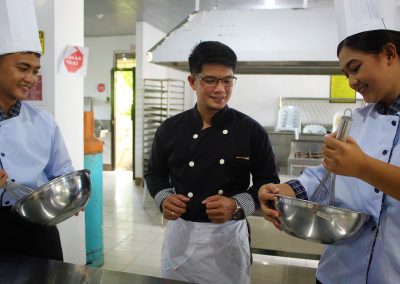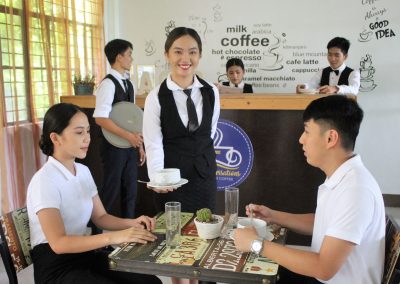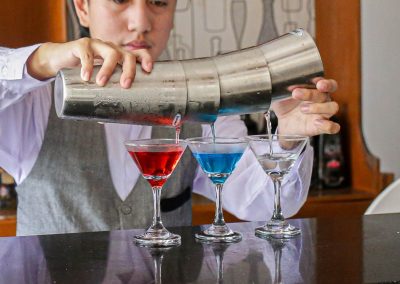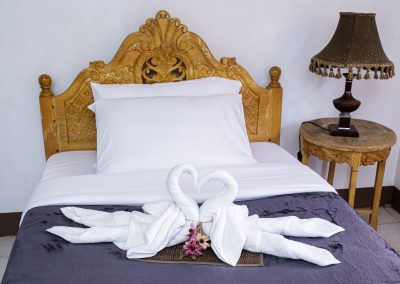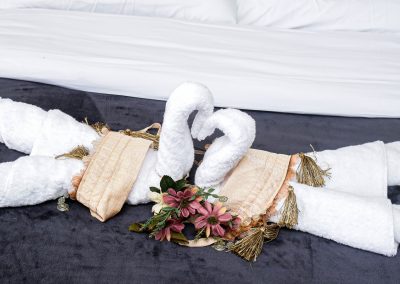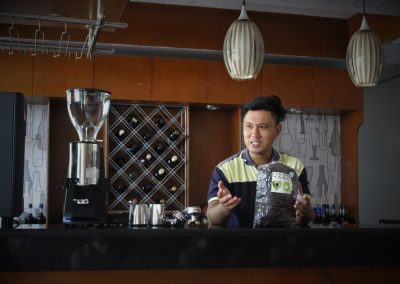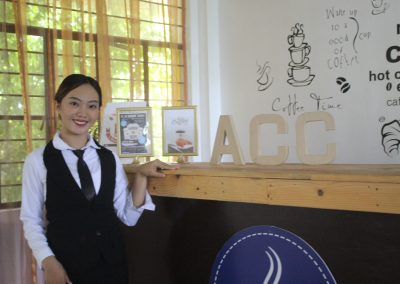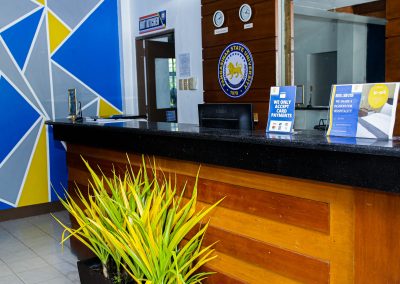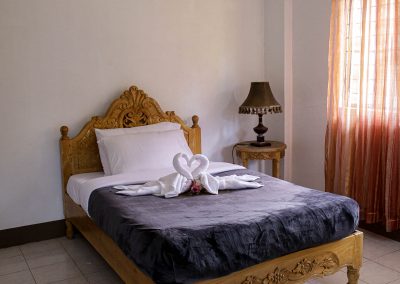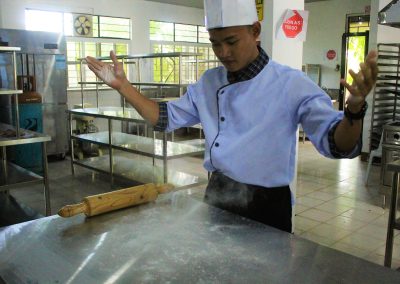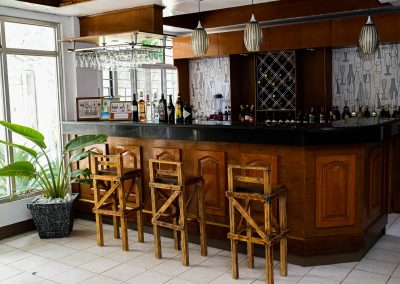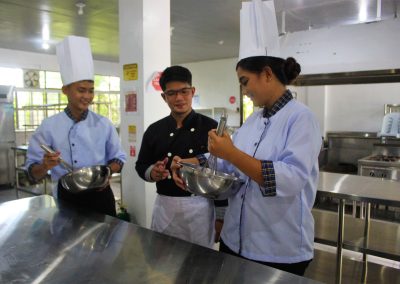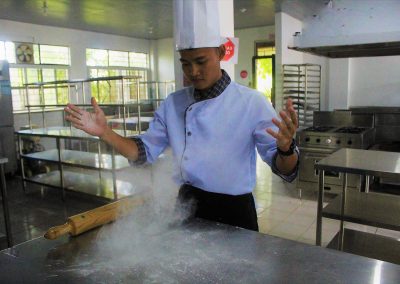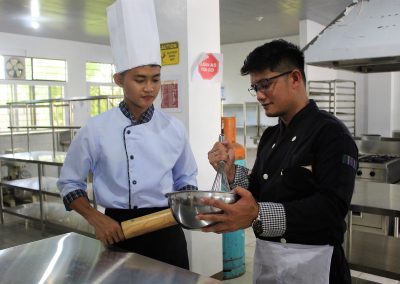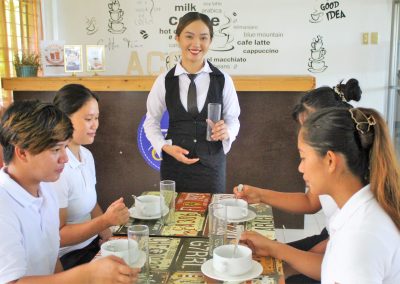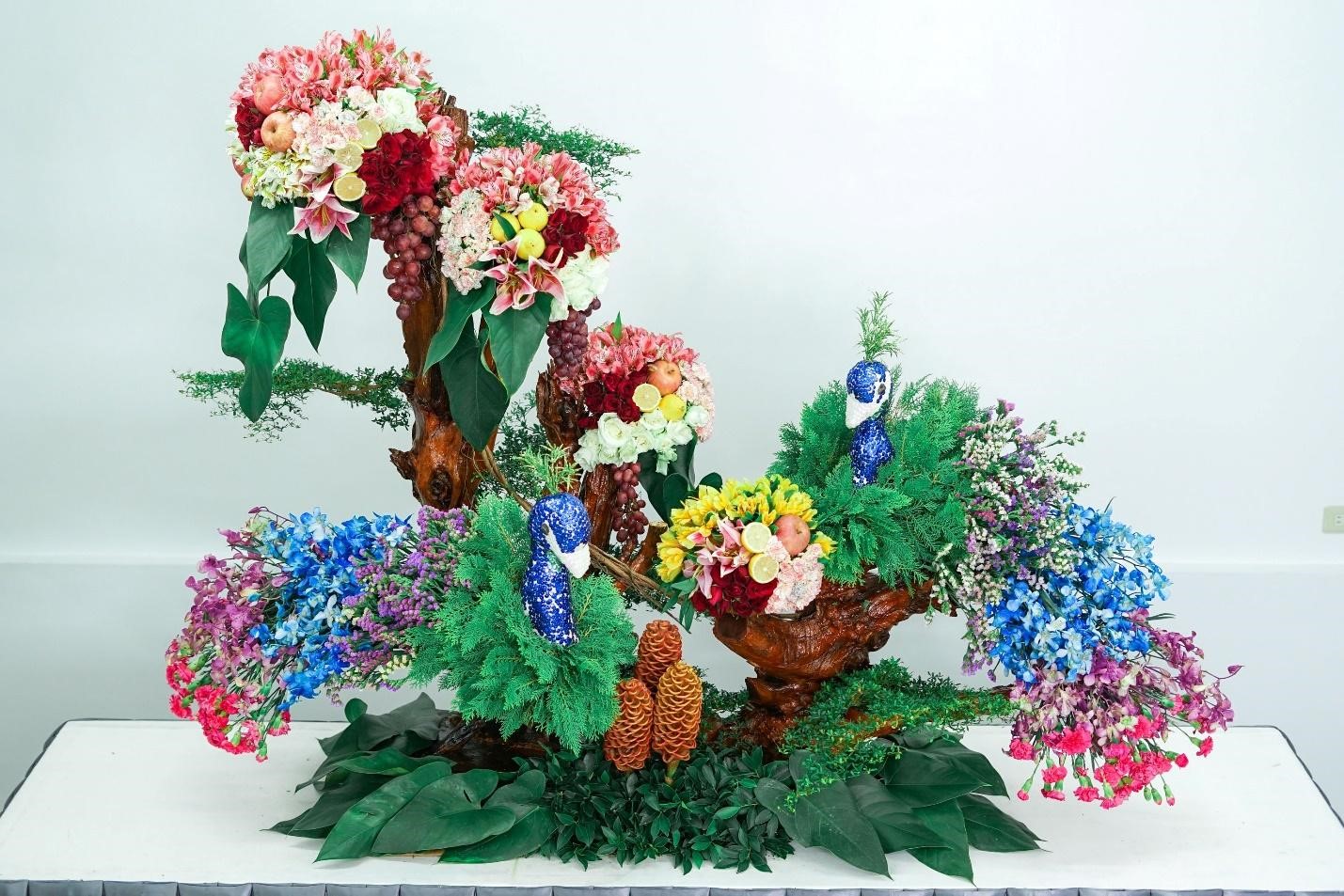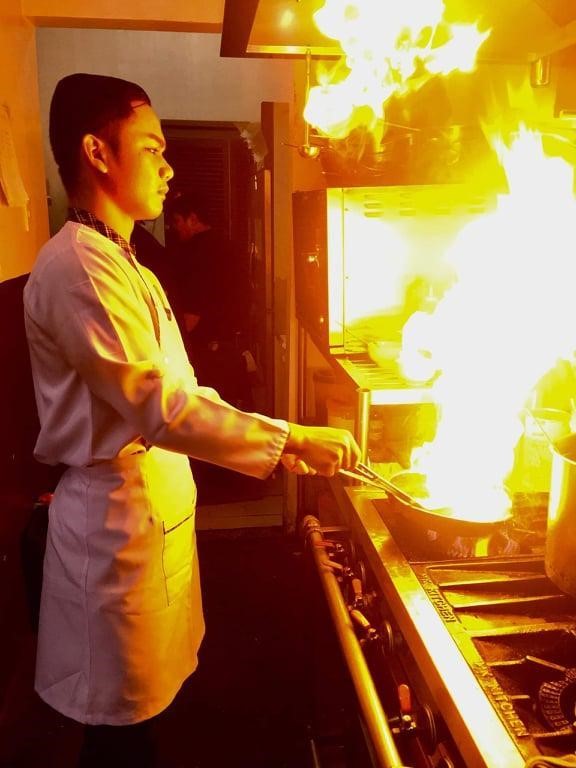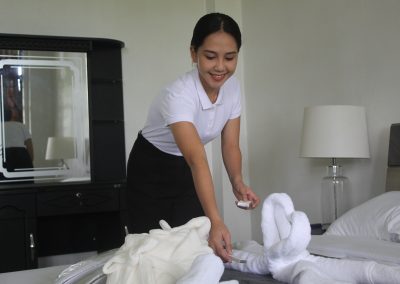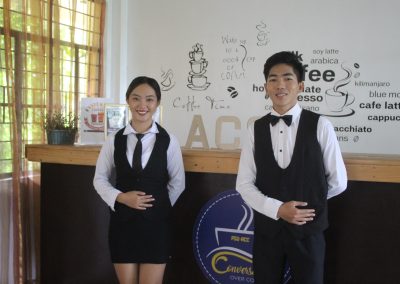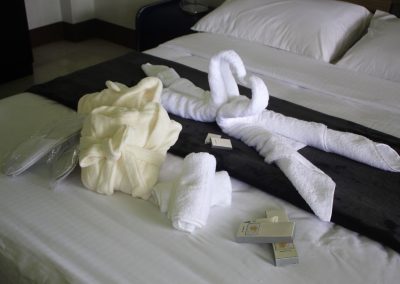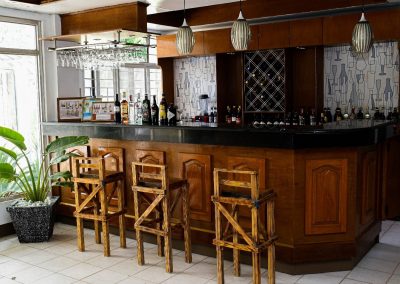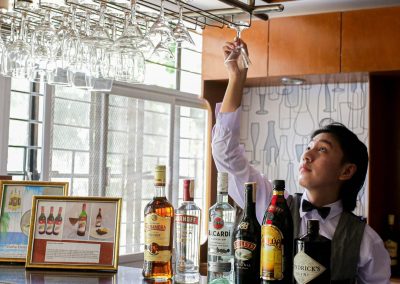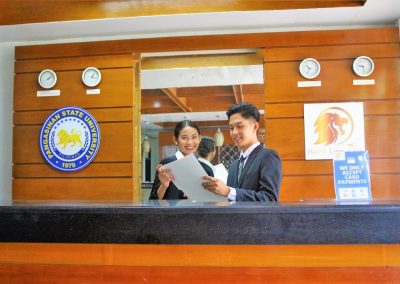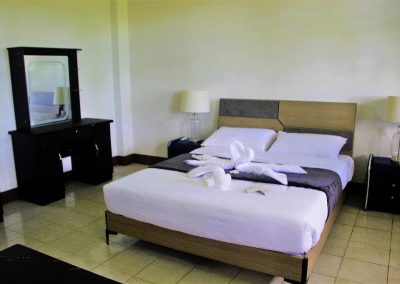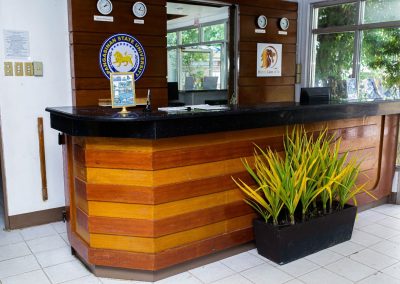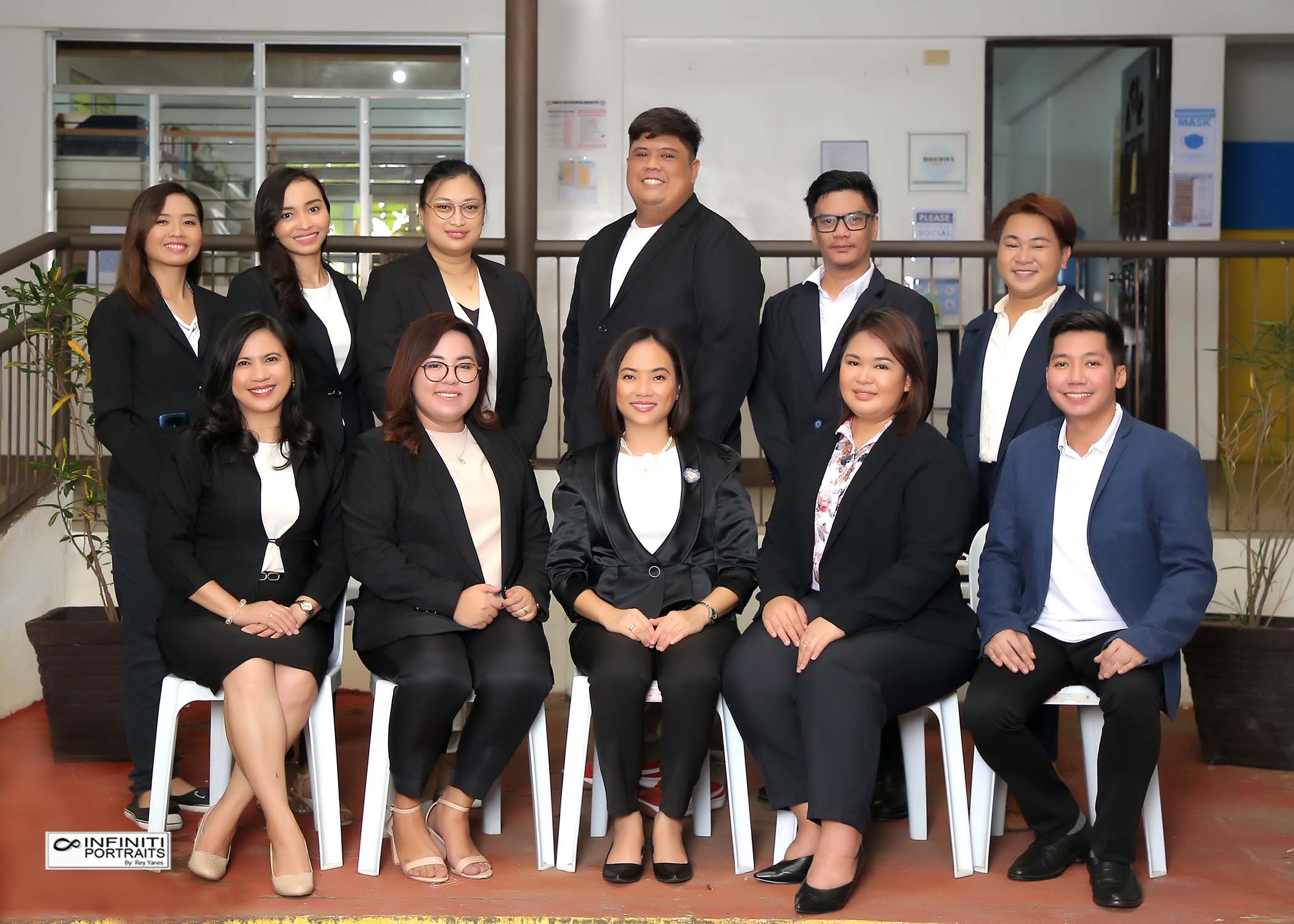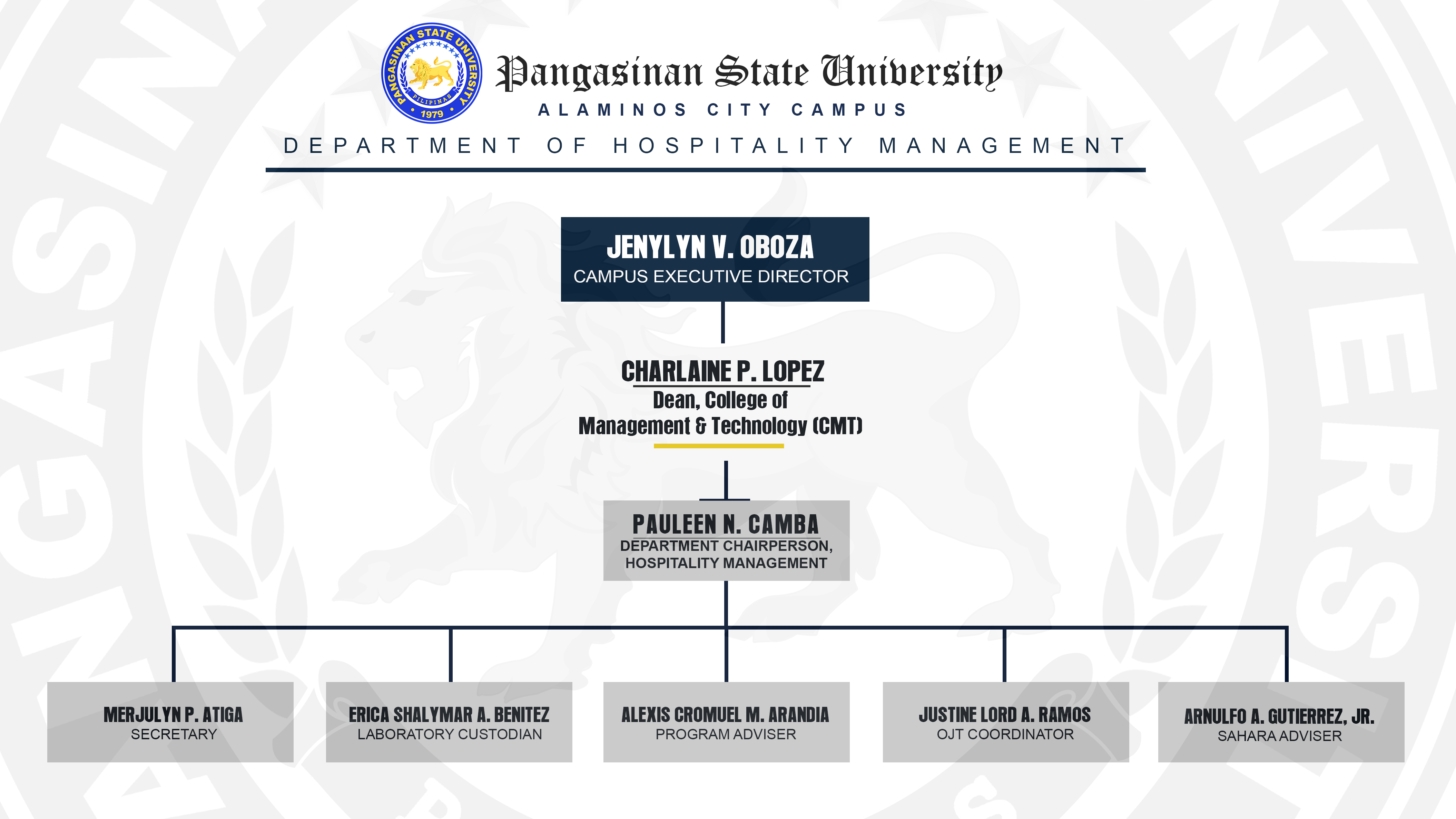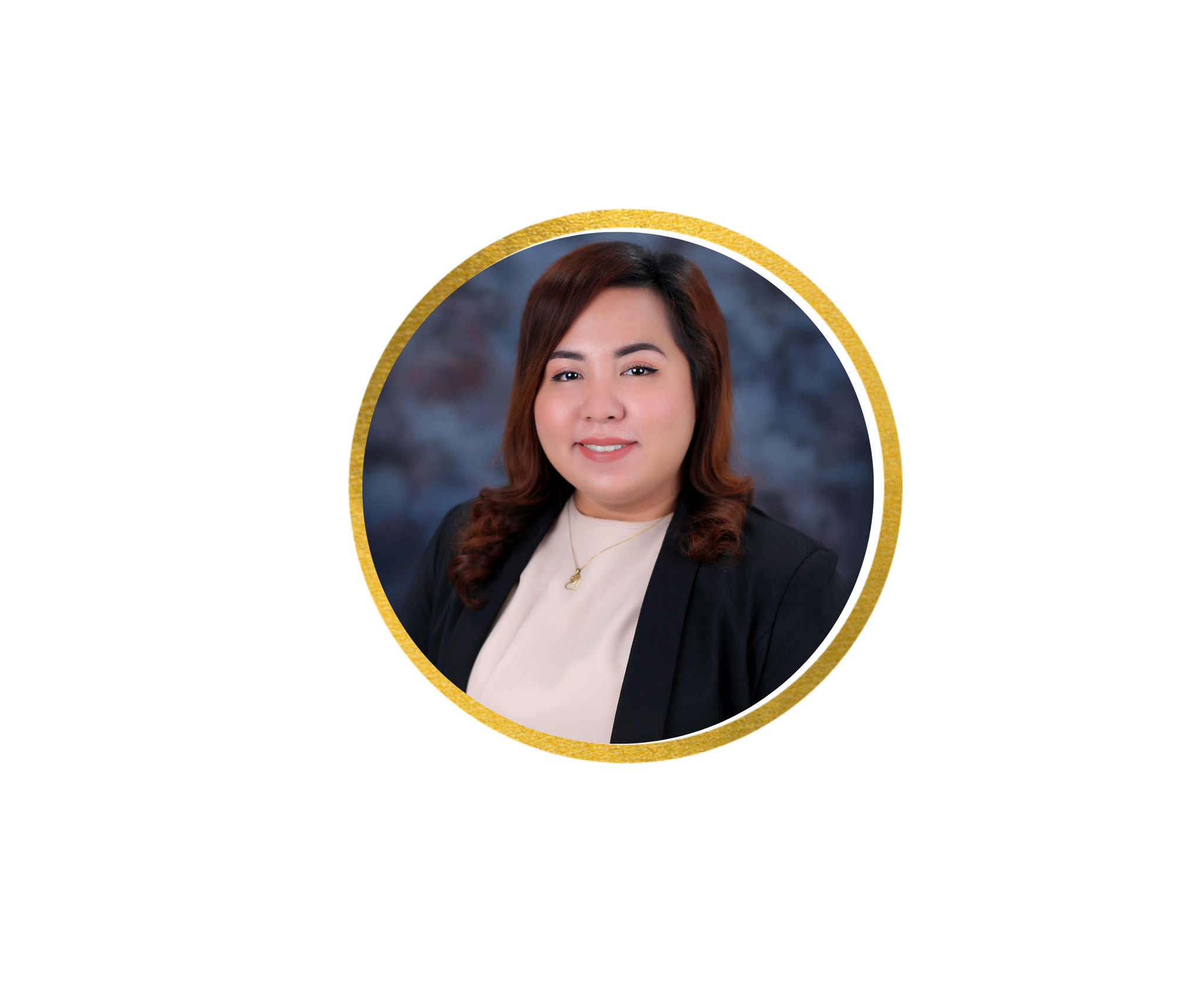
Dr. PAULEEN MAE N. CAMBA
Department Chair
WELCOME TO THE HTM DEPARTMENT!
The Hospitality and Tourism Management (HTM) Department has many reasons to be proud of since our students have risen to the challenges of adjusting to learning in virtual formats. Still, we are more excited about the prospect of all of them enjoying online learning, campus life, and community engagement once again. During the past year, the HTM department strived to provide the students with a learning environment to help them develop their knowledge and skills and be ready in their field. We all know that the hospitality industry is a very competitive environment, so the HTM faculty and staff are doing their best to give the students quality education by following the standards of the different accrediting bodies. We hone our students to be globally competitive in their field of specialization.
TRIP TO MEMORY LANE OF BSHM
Pangasinan State University Alaminos City Campus, Bachelor of Science in Hospitality Management started as a program in 2009 with Dr. Arnold Ancheta and Dr. Jim L. Aleta as pioneer faculty members with only two sections. The program is under the College of Management and Technology which includes the BS Business Administration and BS Information Technology (CMT).
The HTM Department has its state-of-the-art laboratory and classroom facilities in its BCRD building with eight competitive faculty members. The LGU of Alaminos City helped actualized the vision to have a high-class university in the city with the hope of strengthening the tourism and hospitality industry in the town. This is a clear indication of a strong school-community relationship. Currently, the department has more than 500 BSHM students and caters to the first batch of K-12 graduates. The college offers different subjects that enhance students’ bartending, cooking, baking, and housekeeping skills. Capable and capacitated teachers teach these subjects with one goal of producing students with skills needed for international and local employment.
In the upcoming academic year, PSU-ACC will offer a new curricular program, the BS Tourism Management. This is in support to the tourism industry of Alaminos City and the entire Western Pangasinan since it is one of the best hotspots in the province because of its awe-inspiring nature and cordial people. Since tourism and hospitality industry is one of the significant sources of income of people in Western Pangasinan, PSU-ACC believes that the BSHM and BSTM program will enhance and boost the locality’s economy.
Gearing to the new normal, gearing to a more strategic plan
The COVID-19 pandemic has raised many challenges to our education systems. Yet, it also presents an opportunity to reconsider the delivery of education by those in educational leadership positions. School leadership teams play a vital role in creating the environment that supports faculty, staff, students, and their families to continue to be connected and continue learning during the COVID-19 pandemic, whether in school or at home. In times of uncertainty, they can build community, coherence, and equity around schools. In line with this, the Hospitality and Tourism Management (HTM) Department planned and geared toward the new normal to continue and imbibed the PSU’s mission to produce quality individuals. In addition, faculty members are trained and empowered through learning technology-driven techniques and strategies relevant to the new normal education. Innovations have been made fitting and available for both faculty and the learner.
To be responsive and relevant to the industry’s current demand, faculty members creatively implemented innovative strategies and interventions to teach essential learning experiences. With the concerted effort and blazing commitment of everyone, the program is able to overcome the challenges of the COVID-19 pandemic. Teaching strategies, learning activities, and skills development programs are calibrated. The program uses Microsoft Teams as a teaching-learning platform. This online application is used to conduct discussions, perform class activities, and even group performances. Consequently, the student’s enthusiasm to actively participate in the online hands-on activities and virtually experience the teaching and learning process are very much evident in their academic performance ratings.
Furthermore, facilities such as laboratories and classrooms are retrofitted in accordance with the guidelines of the IATF to accommodate students for the limited face-to-face mode. All faculty and students are guided by necessary health and safety measures and protocols inside the campus. Online mode of learning is still provided simultaneously with the limited face-to-face classes during the second semester of A.Y. 2021-2022 to respond to the needs of the majority of the students. Indeed, the new normal challenged the faculty in honing and instilling the PSUnian image among the hospitality students.
HOSPITALITY MANAGEMENT BRINGS HOME THE FEAT
Pangasinan State University takes pride as the overall champion in the 2017 Council of Hotel and Restaurant Educators of the Philippines (COHREP) National Skills Competition held at Lyceum of the Philippines Calamba Laguna Campus. The COHREP event comprises of hospitality cluster, culinary cluster, and tourism cluster. Honorably, it is the first time and probably the first step of PSU joining the national skills competition.
Moreover, delegates from PSU came from the three respective campuses that offer Bachelor of Science in Hospitality Management, PSU-Lingayen, PSU-San Carlos, and PSU-Alaminos. Further, aside from garnering points from different categories under the three distinct clusters, PSU was hailed as the overall champion.
Indeed, another pride is unlocked with the dedication and competence of quality educators and students of Pangasinan State University.
Pagtataripnungan: Creating stronger links to the community
Pagtataripnungan is an Ilocano term that means communicating to reach an agreement on a specific goal. Pagtataripunangan is an element necessary for internship and university partnership with parents, students, and the community. As major education stakeholders, these three social entities play a crucial role in identifying and addressing the different needs for the learners’ progress, thus the need to strengthen the relationship of both parties. Pangasinan State University practices this pagtataripnungan and considers internship a structured and supervised capstone work experience that may be paid or voluntary at various public, private, semi-private, or commercial agencies. The internship program establishes a three-way partnership agreement between the Pangasinan State University, an approved agency, and an intern. Hence, Pangasinan State University, Alaminos City Campus partnered with 4- or 5-star hotels in the country for the industry immersion of BSHM interns. These interns were deployed to the Manor-Camp John Hay Baguio, Le Monet Hotel-Baguio, Holiday Inn-Baguio, Le Chef by the Manor, and Microtel by Wyndman Baguio. Some were deployed at The Forest Lodge by Manor, Elizabeth Hotel Baguio, Resort World Manila, F1 Hotel, Jade Residence and Suites, White Knight Hotel- Intramuros, and Joy Nostalg by Accord Hotels-Ortigas. The internship program provides rich experience and exposure to students in the real and dynamic world of hospitality industry.

Additionally, PSU ACC responds to parents’ requests to expose their children to the cruise industry. The Hospitality Management Parents Association drafted a letter to the Campus Executive Director in 2018, Dr. Armando D. Junio, and the program Adviser Dr. Jim L. Aleta, stipulating their intention and request to expose their children to the said industry. The administration tapped a service provider for the said request and created a proposal for one-week immersion composed of round-trip actual cruise training from Manila to Boracay to Manila. The immersion enabled the students to experience real work in the cruise line industry. The activity also included hotel operation exposure in one of the hotels in Boracay which provided Hospitality management students a bounty of learning experiences.
Through the initiative of the parents and the support of the administration and faculty, student-interns gained opportunities and relevant experiences in leadership, administration, program development, facility operation, event management, and extramural activities. Both human and financial resources are maximized in terms of the different activities being carried out in relation to the partnership of the university.
INNOVATIVE ENVIRONMENT: ENCOUNTER REAL-WORLD EXPERIENCES IN HOSPITALITY MANAGEMENT FACILITIES
The most qualified, innovative, well-trained, competent, and committed faculty are selected to serve and support the Bachelor of Science in Hospitality Management (BSHM) program at Pangasinan State University-Alaminos City Campus (PSU-ACC). It seeks to provide a standard body of knowledge in hospitality management in innovative, functional facilities and an authentic education environment that offers awareness of skills and attitudes which will prepare students for responsible leadership roles in the hospitality industry. On that account, hospitality management provides an innovative and renovated building known as Bayanihan Center for Rural Development Building (BCRD), equipped with hospitality management laboratories to improve a hospitality management student’s skills and training simulations.
To promote the PSU mission to develop globally competent individuals, the administrators prepared the different facilities needed by the students. Some of these are top-notch facilities composed of the kitchen laboratory where students learn and express their culinary activities. There are also mock rooms with a simulated front office patterned after a hotel room set up for housekeeping students to practice room attendant operations. There is also the function room, which serves as a training ground for events management students. Also, the HM laboratories have two storage rooms where kitchenware, banquet equipment, and clearing material are stored. With this, as expected, PSU-ACC is firm in its conviction that the laboratories are an important avenue that equips the students’ competencies needed to execute operational tasks and management functions in food production, accommodation, food, and beverage service, tourism planning and product development, events planning, and tourism industry. The facilities not only satisfy the facility requirement, but it is the best way to offer all students practical “real-world” learning experiences that is highly significant in their chosen profession.
Indeed, to be responsive and relevant to the industry’s demand, hospitality management brings the real-life touch of industry inside the campus.
ACCREDITED
AACCUP LEVEL II
STUDENT’S EMPLOYMENT OPPORTUNITIES
- Restaurant manager
- Restaurant supervisor
- Restaurant Host/Hostess
- Food and beverage attendant
- Sommelier
- Chef
- Sous Chef
- Baker
- Bar manager
- Bar supervisor
- Bartender
- Bar waiter
- Bar steward
- Barista
- In-flight chef
- Banquet manager
- Banquet chef
- Cabin Steward/Stewardess
- Bell Person
- Front office supervisor
- Front office manager
- Front office staff
- Concierge
- Guest Service Manager
- Guest Service Officer
- Executive Housekeeper
- Housekeeping manager
- Housekeeping supervisor
- Housekeeping staff
- Casino Dealer
The intent of the Hospitality Managemnt program is to produce graduates who are able to meet the demands of the HM in the industry, both local and national area and in the ASEAN region. It has the following objectives:
1. Undertake projects that show ability to solve complex problems and to work in teams on problems whose solutions lead to significant societal benefits.
2. Communicate effectively with diverse stakeholders as well as function appropriately in a team environment.
3. Demonstrate ethical behavior as an HM professional and sensitivity to the impact of technology and society.
4. Engage in lifelong learning and professional development.
| PROGRAM OUTCOMES | PERFORMANCE INDICATORS |
| Practice industry-defined work ethics and good guest relations in any situation. |
Establish positive attitude of determination and dedication toward one’s job, to live an ethical life and professional behavior. |
| Respond to internal and external customers’ needs and demands in a professional and ethical manner. |
Foster transparency, honesty and open relationship that would build with its regular customers, potential customers. |
| Observe business principles and management protocols to function effectively as an individual and as a team player |
Show workplace behavior and respect for all people includes an honest, unbiased and unprejudiced work environment. |
| Use knowledge of best practices to further sustainability in the hospitality industry. |
Deliver accurate and wise at sharing worthy knowledge, have great sharing the core efficiency and values of the hospitality industry. |
| Apply knowledge and skills of current and relevant technologies in a manner designed to enhance organizational performance in a hospitality environment. |
Demonstrate ability to connect to the internet without many interruptions, high density Wi-Fi, offer access to audio-visual, digital facilities for check-ins, room service order and other customer-oriented digital interactions. |
| Communicate effectively and confidently through oral and written means. |
Respond to one’s thoughts clearly and concisely, able to create focus, energy and passion. |
| Support the environmental practices and activities of the university aligned with the national and international hospitality industry standards. |
Sustain natural ecosystems that can continue to support life and provide resources to meet the needs of the present and future generations. |
| Preserve and promote the arts and cultural heritage of Pangasinan and the country in general. |
Participate in traditional performances at certain events or activities that reflect and shape values, beliefs and aspirations, thereby defining a people’s national identity. |
| Respect others religious beliefs, practices or traditions and show knowledge of multicultural perspective to work effectively with people in a diverse environment. |
Engage in a purposeful life, influence feelings, behaviors, mental health and how treated the biodiversity resources in nature. |
- Develop the students’ competencies by instilling the latest HM knowledge and skills.
- Develop and enrich the HM education curriculum that is flexible and adaptable to meet the needs of students and the HM industry.
- Promote students’ holistic development to improve their skills and abilities.
- Expand and establish network of linkages with other institutions both private and public to strengthen academe-industry support.
- Establish instruction-related support systems.
